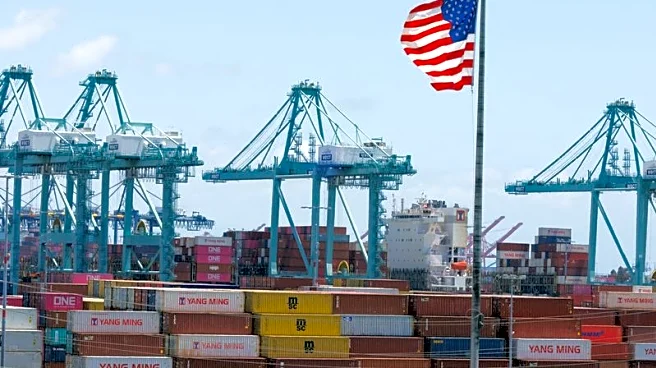Rapid Read • 7 min read
Thousands of Boeing workers at manufacturing plants in Missouri and Illinois have gone on strike, halting production of fighter jets. The strike follows the rejection of a modified four-year labor agreement by 3,200 workers, represented by the International Association of Machinists and Aerospace Workers union. The rejected proposal included a 20% wage increase over four years. Boeing had anticipated the strike and implemented contingency plans to continue operations with non-striking workers. The strike comes amid Boeing's ongoing struggles, including financial losses and safety concerns following crashes of its aircraft.
AD
The strike at Boeing highlights ongoing labor disputes in the aerospace industry, which could affect production schedules and defense contracts. The halt in fighter jet production may impact Boeing's financial performance and its ability to meet contractual obligations. The labor unrest reflects broader challenges in the industry, including workforce management and safety concerns. The strike could influence negotiations in other sectors, as workers seek better wages and working conditions.
Negotiations between Boeing and the union may continue as both parties seek a resolution. The strike's duration and impact on production will be closely monitored by industry stakeholders and government agencies. Boeing may need to address worker concerns to prevent further disruptions and ensure long-term stability.
The strike raises questions about labor relations in the aerospace industry and the balance between corporate profitability and worker welfare. It may prompt discussions on the role of unions in advocating for employee rights and the need for companies to prioritize safety and fair compensation.
AD
More Stories You Might Enjoy











